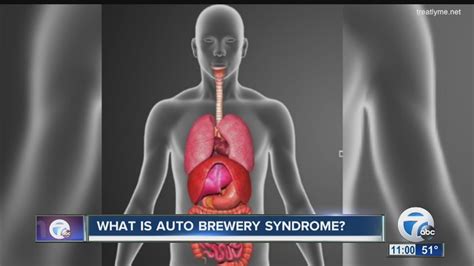Auto-brewery syndrome is a rare and often misunderstood medical condition where an individual’s gut flora ferments carbohydrates into ethanol, leading to symptoms of intoxication without the person consuming any alcohol. This condition can result in significant social, legal, and medical consequences for the affected individuals. The diagnosis and management of such a condition are crucial, yet many patients suffer for years before receiving an accurate diagnosis. This was notably the case for a 50-year-old woman, who repeatedly visited emergency departments only to be misdiagnosed as having alcohol intoxication, despite clear assertions and corroboration from her family that she did not consume alcohol.
Looking at the patient’s journey, the role of healthcare professionals and their approach to differential diagnosis is vital. One can’t help but think about how often medical care relies heavily on normative diagnoses rather than differential ones. Physicians generally rely on statistical norms, which understandably lean towards more common conditions. However, there is a subtle but critical need for medical practitioners to listen to and believe their patients, even when their symptoms defy conventional expectations. In this woman’s case, several non-invasive tests and a bit more curiosity from her doctors might have led to an earlier diagnosis and spared her much undue stress.
From patient stories shared in the comments on this case, it becomes clear that diagnosis isn’t always straightforward. A user recounts how it took years to receive a diagnosis for Small Intestinal Bacterial Overgrowth (SIBO), even though the diagnostic breath test is relatively straightforward and inexpensive. This reflects a broader issue within the healthcare system: the potential for dismissiveness and assumptions, particularly when rare diseases are involved. As one commenter pointed out, there are established frameworks in statistics and decision theory that can aid in handling such diagnostic challenges. Still, real-world application in complex medical cases like these remains scarce.
Therein lies a crucial factor: the healthcare system’s tendency to lean on occam’s razor, where the simplest explanation is assumed most plausible. This often leaves patients with rare conditions in the lurch, continually battling for recognition and appropriate treatment. One user aptly noted that for every case that takes years and multiple doctors to diagnose, there are thousands treated correctly on the first visit. This statistical reality underscores the necessity for general practitioners to enhance their diagnostic acumen to include more atypical conditions, even if they remain outliers.
Moreover, the same user made an insightful point about the system’s inherent dysfunctionality: ‘We can’t gather information because we will react in stupid ways.’ In a nuanced healthcare system, running basic and non-invasive tests when faced with chronic unexplained symptoms should not be sidelined due to fear of costly interventions. If a simple test like a hydrogen breath test can provide additional diagnostic clues without significant patient harm or cost, why isn’t it more commonly utilized? Another user suggested that even running inexpensive tests twice could help corroborate results, supporting more confident clinical decisions.
The psychological toll on patients should also not be underestimated. The frustration shared in the comments about being dismissed by doctors is palpable. Especially for women, there remains a pervasive issue of not being taken seriously in medical settings. As one user recounted, wearing a suit to medical appointments to attempt to circumvent gender biases underscores systemic flaws. By comparison, spontaneous empathy and attention could resolve such issues. Another user suggested that spending a night in the hospital for observation could have immediately diagnosed the woman in question, emphasizing the importance of comprehensive patient management over expedient dismissal.
Summarily, the diagnostic journey for patients with rare conditions like auto-brewery syndrome highlights systemic weaknesses in healthcare. A combination of better listening, comprehensive but judicious testing, and an openness to outlier possibilities could greatly enhance patient outcomes. Medical education should stress the importance of considering and ruling out rare conditions when common explanations don’t fully align with patient reports. For patients and healthcare advocates, these narratives underscore the pressing need for persistent advocacy and empathy within our healthcare systems. Ultimately, ensuring patients are heard and their symptoms investigated sincerely should stand as fundamental tenets for all medical practitioners.


Leave a Reply